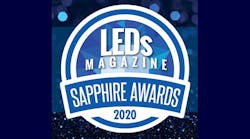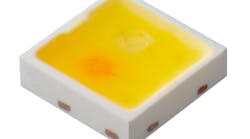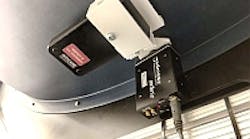The UK Technology Strategy Board and the Department for Environment, Food and Rural Affairs (Defra) say they are aiming to help companies become market leaders in high-performance lighting, while contributing to reduced energy consumption in UK homes.
Businesses will be invited to compete for contracts through a Small Business Research Initiative (SBRI) competition, which will be run in two phases. The first phase of the competition opens on 22 February 2010 and the deadline for applications is 19 April 2010.
Phase 1 of the competition, which is intended to show the technical feasibility of the proposed concept, will see multiple development contracts placed for a maximum of 3 months and up to GBP40,000 per project. The target applications will be directional and non-directional lighting for the domestic market. Projects should cover specific technical work leading to the demonstration of an ulatr-efficient lighting (UEL) source which meets the technical criteria.
“UEL” has yet to be strictly defined, but the technical criteria call for luminous efficacy of 90 lm/W, and a color temperature of 2700-3000K.
Phase 2 contracts are intended to develop and evaluate prototypes or demonstration units from the more promising technologies in Phase 1. Funding of up to GBP450,000 per project will be available, for projects lasting a maximum of 12 months. It is anticipated this will involve making further improvements from Phase 1, such as refining the detailed design, preparation for manufacturing, and conducting product liability testing and documentation, including CE mark certification.
The output of phase 2 will be the production of 50 lighting units for field trials over a further 6 month period, which will be coordinated by the Technology Strategy Board. These phase two products should have full safety certification, environmental reliability studies and at least 3 months of life-test evaluation under accelerated conditions showing performance expected to achieve >25,000 hours (L70).
Environment Minister Dan Norris said: “Moving towards a more sustainable, low-carbon and resource-efficient future is vital for our environment, but also offers great opportunities for economic growth and job creation. This exciting competition could bring enormous benefits both for UK businesses and for consumers. The more efficient lighting is, the more money consumers save on energy bills and the economy will benefit from new jobs and new manufacturing helping Britain to lead the global market for low-carbon technologies.”
Outlining the aims of the competition, the Head of SBRI, Mark Glover, said: “The UK has already put in place measures to remove the least-efficient lighting products based on Victorian [nineteenth century] incandescent technology in favor of energy-efficient compact fluorescent lamps (CFLs). However there is potential to move further and this competition aims to develop a capability within the UK for the supply of Ultra Efficient Lamp technology, which can provide lighting for the home that is of high quality with exceptional efficiency and long lifetimes. At the end of the demonstration period, we want to see high-quality, compact Ultra Efficient Lamps that everyone would be happy to use at home.”




